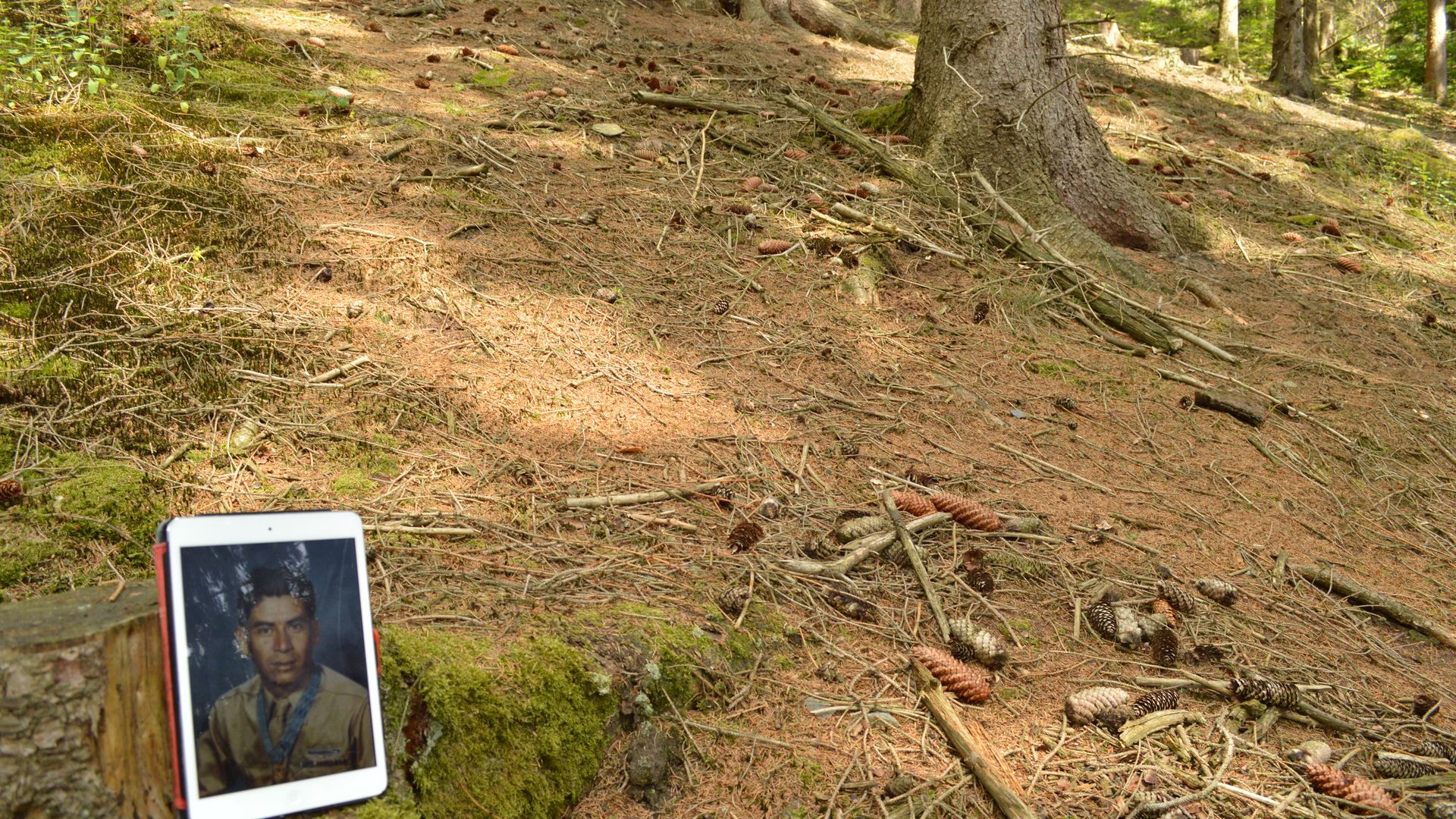Retracing the steps of U.S. Latino heroes in Germany
Add Axios as your preferred source to
see more of our stories on Google.

A photo of World War II Medal of Honor recipient Macario Garcia on an iPad Mini sits in Germany's Hürtgen Forest where he performed his heroric deeds. Photo: Russell Contreras/Axios.
Deep in Germany’s Hürtgen Forest, one can retrace the paths of Mexican American soldiers on their way to help defeat the Nazis.
The big picture: Returning Latino veterans of World War II played a pivotal role in creating the first large-scale Hispanic middle class in the U.S. and helped spark the Latino Civil Rights Movement. But their actions still are relatively unknown to the public.
Details: Germany's North Rhine-Westphalia region offers opportunities for visitors to hike the Hürtgen Forest trail to see firsthand the area where U.S. Army Pvt. Macario Garcia earned the Medal of Honor for his battlefield heroics.
- In November 1944, Garcia destroyed two German encampments and captured four prisoners by himself after his pinned-down infantry regiment ducked bullets and bombs near Grosshau, Germany.
- The son of Mexican immigrants who had learned “to shoot by killing rabbits on the farm in Sugar Land,” just outside of Houston, refused to listen to orders to seek protection after he suffered wounds and went on to destroy the artillery guns.
- “The intrepid soldier went forward, utterly disregarding his own safety,” Garcia's Medal of Honor citation read.
- Life Magazine wrote about Garcia's bravery.
What happened next: The following August, President Harry Truman presented the medal to Garcia, who returned to a hero's welcome in Houston.
- But a night after the celebration, he was denied service at a segregated restaurant, sparking the Mexican American Civil Rights Movement.
- The controversy was loosely depicted in the final scene of the 1956 movie "Giant" starring Elizabeth Taylor, Rock Hudson, and James Dean.
Between the lines: Today, there are just a handful of historic markers in the U.S. honoring Latino veterans, but in Germany, one can hike the Liberation Route Europe — a network that connects important places of the Allied Invasion.
- The Hemingway Trail in the Hürtgen Forest outside of Grosshau allows visitors to pay respects to what Garcia and other U.S. soldiers endured.
- The wooded area once witnessed some of the fiercest fights in WWII.
- Garcia rarely spoke about the horrors of the Hürtgen Forest.
The intrigue: WWII liberation tours by Latinos are part of a travel movement that Alaska Native poet Joan Kane calls "dialectical travel" — where travelers reinterpret and reclaim sites to restore the history of the forgotten.
One fun fact: Garcia was among the veterans who greeted President John F. Kennedy at the door of the Grand Ballroom of the Rice Hotel in Houston when the president spoke to Mexican American activists the night before his assassination.
Garcia advocated for civil rights in Houston until his death in 1972 in an automobile accident.
